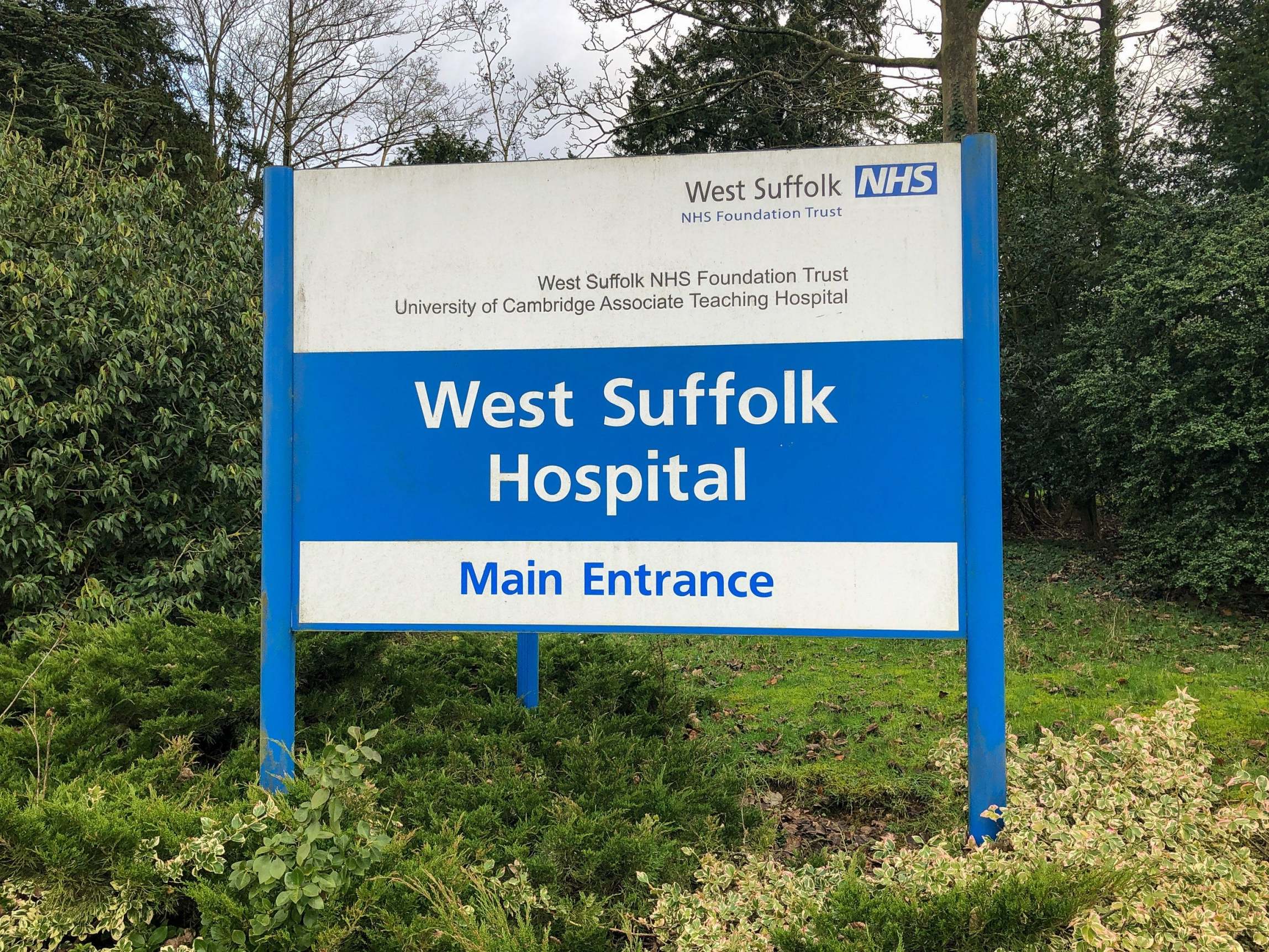Top hospital downgraded amid safety fears and whistleblowing inquiry
West Suffolk Foundation Trust chief executive Stephen Dunn received a CBE for services to patient safety in 2018

Your support helps us to tell the story
From reproductive rights to climate change to Big Tech, The Independent is on the ground when the story is developing. Whether it's investigating the financials of Elon Musk's pro-Trump PAC or producing our latest documentary, 'The A Word', which shines a light on the American women fighting for reproductive rights, we know how important it is to parse out the facts from the messaging.
At such a critical moment in US history, we need reporters on the ground. Your donation allows us to keep sending journalists to speak to both sides of the story.
The Independent is trusted by Americans across the entire political spectrum. And unlike many other quality news outlets, we choose not to lock Americans out of our reporting and analysis with paywalls. We believe quality journalism should be available to everyone, paid for by those who can afford it.
Your support makes all the difference.A hospital at the centre of a whistleblowing inquiry has been downgraded by the care watchdog and issued with a warning notice amid concerns over leadership and patient safety.
West Suffolk Foundation Trust, the health secretary Matt Hancock’s local hospital trust, has been rated requires improvement by the Care Quality Commission in a damning report having previously been rated outstanding since 2017.
The trust, whose chief executive Stephen Dunn received a CBE for services to patient safety in 2018, has faced criticism after bosses threatened senior doctors with a fingerprint and handwriting analysis to try and identify a whistleblower.
The checks would have cost the taxpayer almost £2,500 but the trust backed down amid criticism.
The whistleblower wrote to Jon Warby about surgical errors in the care of his wife, Susan, who died in August 2018. An inquest into the 57-year-old’s death was has been adjourned.
On Tuesday health minister Edward Argar told MPs he had asked NHS England to carry out an inquiry. He said: “I want all staff to feel that they can speak up and have the confidence that anything they raise will be taken seriously. That is why I requested on 17 January that NHS England and NHS Improvement commission a rapid and independent review into how the West Suffolk NHS Foundation Trust has handled this issue.”
In a new report published today the CQC inspectors said they had significant concerns about the safety of mothers and babies in the trust’s maternity unit and the criticised the culture of the trust leadership referencing what they called “threatening” actions.
In the West Suffolk hospital maternity unit the CQC found staff had not completed key safety training, did not protect women from domestic abuse, and staff did not always report safety incidents. They also found maternity staff were not taking observations and the unit lacked enough staff with the right qualifications to keep women safe.
The trust was issued with a warning notice by the trust demanding it make improvements before the end of this month.
On the trust leadership the CQC report said: “The style of executive leadership did not represent or demonstrate an open and empowering culture. There was an evident disconnect between the executive team and several consultant specialities.
“Certain actions taken in relation to internal investigations were unusual and of concern. Communications to staff were perceived by some staff as threatening in nature, with a focus on apportioning blame. We were concerned that these actions could discourage staff from raising concerns and could potentially limit wider analysis of patient safety issues.”
The CQC also highlighted concerns over patients needing follow-up appointments who had been lost with the risks unknown.
Despite the failings, inspectors did praise staff for their care saying they “treated patients with compassion and kindness, respected their privacy and dignity, took account of their individual needs, and helped them understand their conditions.”
Chief inspector of hospitals Ted Baker, said: “The trust has told us they have listened to our inspectors’ findings and its board knows what it must do to ensure it makes the necessary improvements. We will return to check on the progress they have made.”
Responding to the CQC inspection the hospital trust chief executive Stephen Dunne said he was “disappointed” by the report adding: “This is not the standard that our patients and community deserve.”
He added: “We must continue to quickly and effectively fix the issues raised in this report. We’ve addressed the immediate safety concerns and the trust has taken action - including the introduction of nationally recognised monitoring for women and their babies. We’ve listened to what the CQC has said and getting things right for our patients is our top priority.”
Trust chair Sheila Childerhouse added: “We will be reviewing our culture and openness to make sure there is an environment where everyone – including our patients, our staff and our commissioners – has an opportunity to contribute and play a full part in our improvement.”
Join our commenting forum
Join thought-provoking conversations, follow other Independent readers and see their replies
Comments